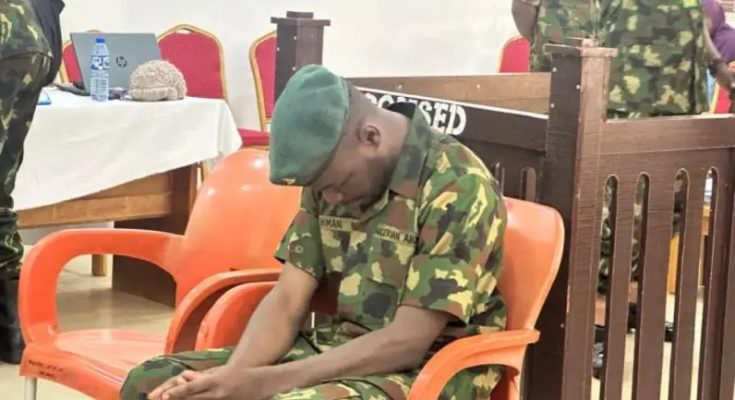The federal government has explained why it has not obeyed the court ruling on the custody of suspended governor of Central Bank of Nigeria, Godwin Emefiele.
It stated that administrative processes and pending charges against Godwin Emefiele, the suspended Central Bank of Nigeria (CBN) governor “occasioned the delay” in obeying court ruling over his custody.
The Director of Public Prosecutions (DPP) at the Federal Ministry of Justice, Abubakar Mohammed, spoke to journalists after a court session on Tuesday. He was seeking to withdraw the firearms charge against Mr Emefiele at the federal high court in Ikoyi, Lagos.
On 25 July, the federal government arraigned Mr Emefiele on a two-count charge of “illegal possession” of firearms and live ammunition.
He was then granted bail of N20 million. However, in violation of the court order asking that he be detained at the Nigeria Correctional Service (NCoS), the SSS rearrested him immediately he stepped out of the courtroom.
Mr Emefiele was rearrested after officials of the two federal agencies engaged in fisticuffs over his custody.
Mr Mohammed said their action in rearresting him did not mean disobedience to court order.
“We are not in disobedience of the court ruling,” he said.
“When the court rendered its ruling granting the defendant bail, it was in two legs. He was granted bail and remanded in the custody of the correctional service pending fulfillment of bail conditions.
“You will agree with me that there are administrative processes for handing over a detainee from one agency to the other. And that is what the state services had to do and that was what occasioned the delay.”
He also explained that the suspended bank chief is being investigated for other offenses, the outcome of which will determine the charges that will be filed against him.
“And if I may say this, there is also another pending charge against him at the high court as we speak. So, all these combined slow down the process of complying with the order of the court,” he said.
Speaking on the pending charges, Mr Mohammed said that “unlawful possession of firearms may be part of it and perhaps more”.
“The charges at the FCT high court, conferring unlawful advantage, there are charges that border on procurement of …under the ICPC Act. 20 counts.”









